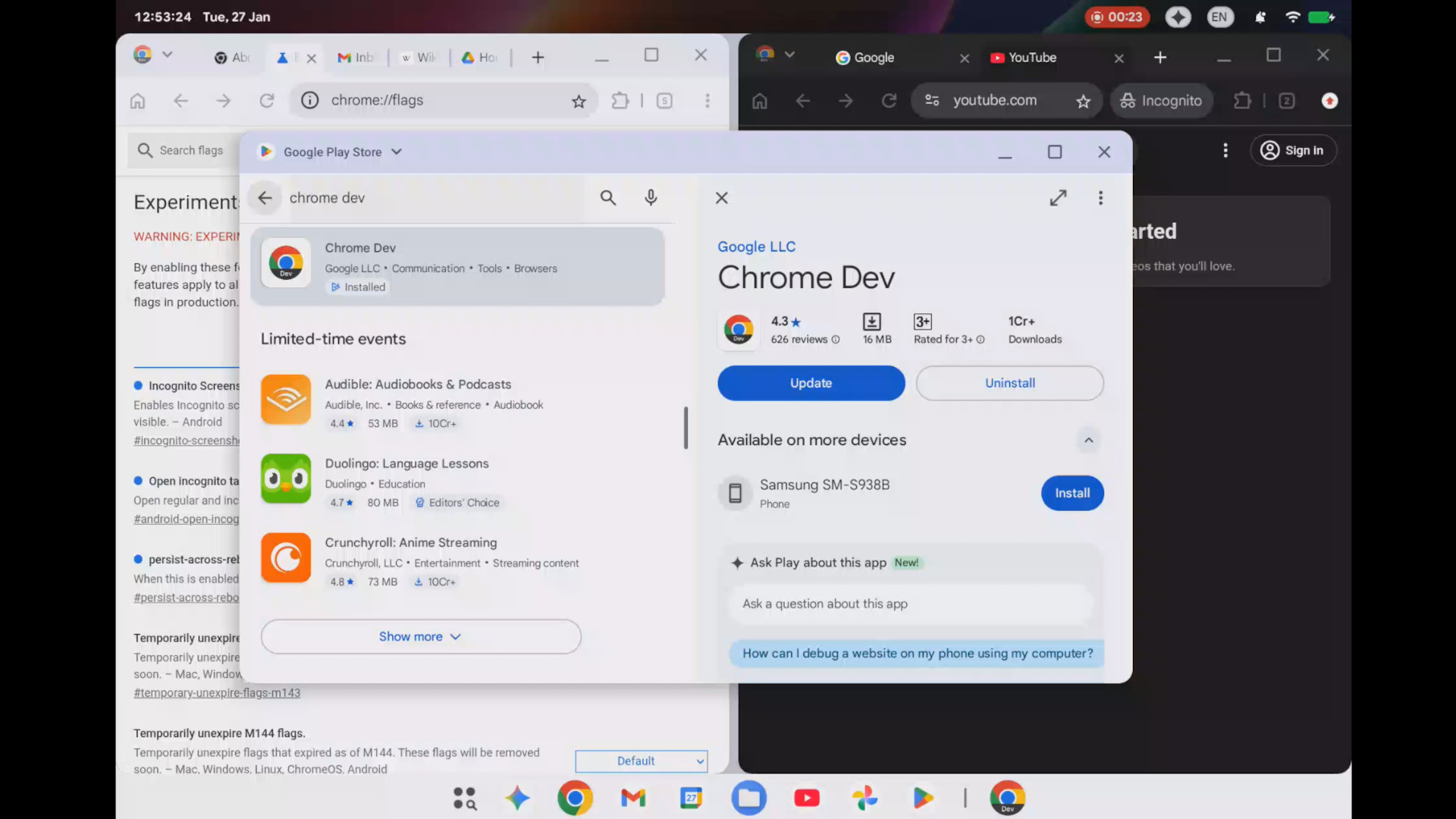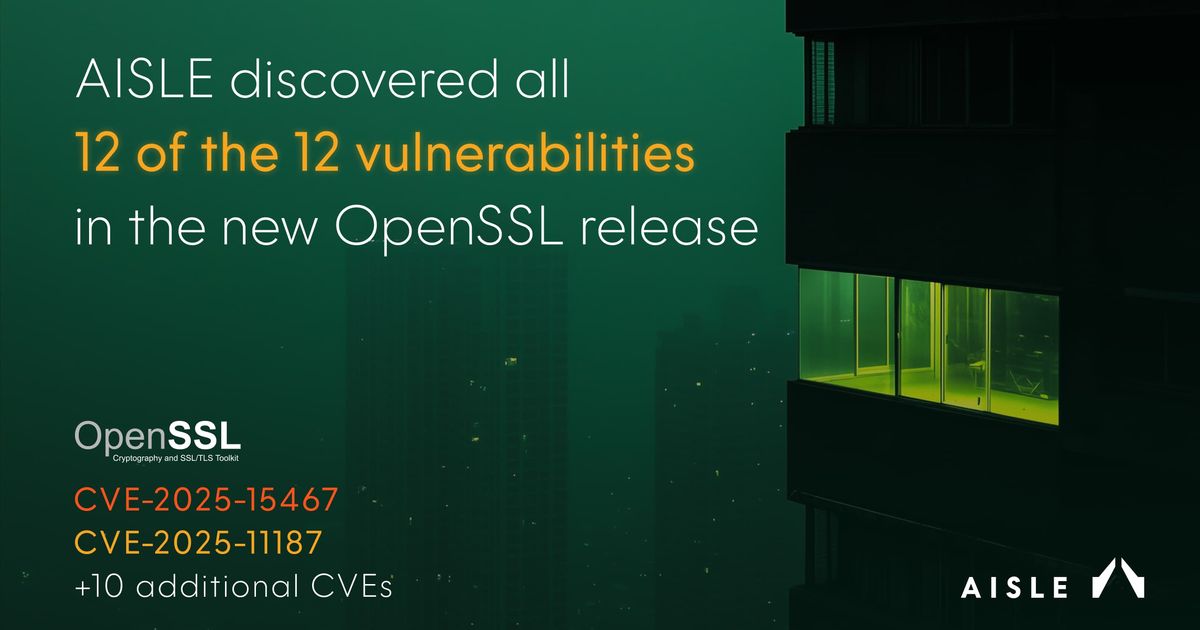AI Summarized Hacker News
Front-page articles summarized hourly.
Mecrisp Stellaris Language Server adds autocomplete for Mecrisp-Stellaris via the Language Server Protocol. It supports many editors (VS Code, Neovim/Vim, Emacs, Sublime Text, Eclipse, IntelliJ, Kate, GNOME Builder, Helix, Lapce, Onivim 2, Nova). The Helix config shows how to run the server with Python 3.11 and mecrisp.lsp.py. Usage: type the first three letters to see completions; press / in insert mode to browse the SQLite dictionary mecrisp_stellaris.db. Requirements: pygls>=0.6.0, lsprotocol>=1.4.0. Download link provided.
HN Comments
Could not summarize article.
HN Comments

Google accidentally revealed Aluminium OS (ALOS), a future unified platform intended to replace Chrome OS by combining Chrome OS and Android for PCs. A Chromium bug report included two screen recordings of Aluminium OS on an HP Elite Dragonfly 13.5 Chromebook, showing a desktop-like UI, split-screen multitasking with two Chrome windows, a centered taskbar, and Play Store and Chrome running together. The build is labeled ALOS, with Android 16 shown in the Chrome window. One recording demonstrates updating Chrome via Play Store without closing the browser. Some advocate focusing on Android on big screens first.
HN Comments
Video Boy VUE is an Intelligent Systems device that displays Virtual Boy games on a TV/monitor via PAL output. It uses a MAI-VUE-X8 main board and a VUE TV Monitor, with two Xilinx FPGAs, SRAM, a 1Mbit EPROM, a S-RGB encoder, and DACs to generate RGB/AV output. DIP switches control display options: left eye (red), right eye (green), and an optional red/green anaglyph; combined for stereo. It converts the Virtual Boy's scanned image to a PAL signal and often served as a debugging/recording tool, possibly used by Nintendo Power. Includes various labels and prototypes.
HN Comments

Chris Hynes recalls Aperture’s 2004–2005 run as Senior QA, a roller-coaster of brilliance and chaos. He describes a stellar, humorous team with co-creators Randy Ubillos and Stan Jirman, early collaborative testing, and hiring top photographers to ground the product in professional workflow. As ship date loomed, management cut features, forced long hours, and installed a new, out-of-depth manager, triggering yelling, anxiety, and bug-count games. The project shipped amid turmoil; most original engineers left for other Apple roles, some stayed. Hynes later joined the SwiftUI effort on the Apple Watch team and preserves Aperture’s camaraderie.
HN Comments

Kyber, a YC-backed enterprise AI startup in New York, seeks a Staff Engineer / Tech Lead to own backend, frontend, data, and infra, drive end-to-end technical decisions, ship features, and scale AI workflows. Requires 6+ years full-stack experience, a 10x engineering mindset, strong system design, security/compliance, and leadership. Salary $200k–$260k with 0.5–1.5% equity; 100% employer-covered benefits. Kyber automates regulatory notices for insurers; 18 months revenue up 30x, profitable, with partners like Guidewire and Snapsheet. Interview: founder screen, take-home, system design, scaling, leadership.
HN Comments

Teen coder Neth Dharmasiri, 17, from Queensland, created Thadus CodeLabs, an offline-friendly coding education app for beginners, with Chinmay Lal. The three-course program covers basics and data science and aims to bridge the digital divide in rural Sri Lanka, where home computers are scarce. Inspired by a Sri Lanka trip and Gates' approach, the app will be free for nonprofits via the Foundation of Goodness; a for-profit arm exists. Philanthropist Kushil Gunasekera will help roll it out to 22 rural labs. Experts say coding is essential alongside literacy and numeracy to empower students.
HN Comments
pandas released 3.0.0 with major enhancements and breaking changes. Highlights: default string dtype (str) for string columns; Copy-on-Write makes operations more predictable and removes SettingWithCopyWarning; datetime-like data now defaults to microsecond resolution to avoid out-of-bounds; new pd.col() syntax for DataFrame.assign; numerous bug fixes and improvements. Upgrading: first move to 2.3 to address warnings, then to 3.0; breaking changes include string dtype and CoW behavior; pyarrow optional for performance. Install via pip/conda and report issues on the tracker.
HN Comments
ASML will strengthen its focus on engineering and innovation by streamlining Technology and IT, shifting engineers to product- and module-specific roles, and simplifying processes. A core foundational team will remain, but some leadership roles may be cut while new engineering positions are created. The plan could reduce about 1,700 positions (mostly in the Netherlands, some in the US). The company will consult with social partners, keep employees informed, and continue hiring in Manufacturing, Customer Support, and Sales to sustain growth and innovation.
HN Comments
HN Arcade is a directory of games from Hacker News, allowing users to discover, browse, tag, and submit games.
HN Comments

The Square Kilometre Array (SKA) Observatory, spanning Australia (SKA-Low) and South Africa (SKA-Mid), has produced first light and plans to begin science in 2028 with thousands of antennas, becoming the world’s largest, most sensitive radio telescope. Built atop 15 precursors and four pathfinders (MeerKAT, HERA, MWA, ASKAP), they already reveal Milky Way center details, map pulsars, and uncover new radio transients. The precursors test technologies and raise new questions; a major challenge is satellite interference, addressed by policy and engineering measures. SKA will illuminate galaxy formation, dark matter, and the early universe.
HN Comments

WhatsApp rolled out a Rust-based layer to strengthen media handling against malware. They replaced 160,000 lines of C++ with 90,000 lines of Rust, achieving better memory safety and performance across Android, iOS, Web and more. The system, called Kaleidoscope, adds checks for non-conformant structures, risky file types, and spoofed extensions to guard against parser exploits. The move follows the 2015 Stagefright vulnerability and is part of a broader strategy to default to memory-safe languages for new code, with audits, fuzzing, automated analysis, and expanded Bug Bounty efforts. They expect faster Rust adoption ahead.
HN Comments

An introspective note on stopping daily news to protect well-being. Mert Bulan explains that constant consumption of international and tech news left him stressed and uninformed, with headlines leaning negative and rarely affecting his daily life. He abandons daily feeds in favor of selective, low-noise sources: a Hamburg-focused newsletter, Elbvertiefung, and a quarterly magazine for broader, quality coverage. Since reducing intake, he reads more (7 books in January, 20 last year) and feels better while still satisfying his curiosity.
HN Comments
Could not summarize article.
HN Comments
make.ts outlines a workflow: capture interactive commands in a file instead of typing into the shell. This is better for multi-process experiments and repeatable benchmarks. Benefits: use a real editor, combine multiple commands, incrementally improve them to idempotent steps, and easily evolve into a proper script with loops. Use a consistent make.ts filename, start with a hashbang, and run via a scripting language like TypeScript (Deno) with a library like dax. Example: cross-machine TigerBeetle benchmarking with parallel processes and a parameterized matrix.
HN Comments
Could not summarize article.
HN Comments
Could not summarize article.
HN Comments
The page access is denied by a 403 Forbidden error.
HN Comments
Guillaume Endignoux explains why his Rust benchmarks looked instantaneous and how to use std::hint::black_box correctly. He reviews the #[bench] interface and Bencher::iter, and shows that black_box’s effect mainly comes from constraining the outputs; if only the output is boxed, the compiler can optimize away the computation. He demonstrates that you must place black_box on both inputs and outputs to measure real costs, with simple examples and real benchmarks (char::to_digit, str::parse) and GF(2^n) code. The post concludes black_box is unstable; use input/output fences and profiling for faithful benchmarks.
HN Comments

AISLE's autonomous analyzer found all 12 CVEs in OpenSSL's January 2026 release (CVE-2025-15467, -11187, -15468, -15469, -66199, -68160, -69418, -69419, -69420, -69421, -22795, -22796), spanning high, moderate, and low severities, with 5 fixes incorporated by OpenSSL. It also flagged 6 undesignated findings fixed before release. Started Aug 2025, the effort shows AI-driven continuous security analysis can uncover long-standing issues in mature codebases and accelerate remediation through responsible disclosure and collaboration with OpenSSL, welcomed by CTO Tomáš Mráz and Exec Director Matt Caswell.
HN Comments
Made by Johno Whitaker using FastHTML






